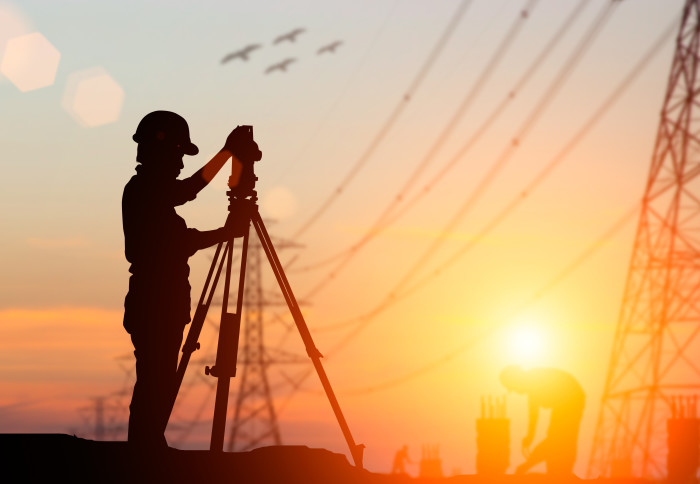Report suggests how built environments can transition towards zero pollution

A new Imperial report outlines a vision for how built infrastructure can work with the natural environment to achieve zero pollution vision.
The report, launched in March 2021 alongside an event to celebrate the Centre for Systems Engineering and Innovation (CSEI)’s tenth anniversary, sets out the CSEI’s vision for the next ten years and the critical role of civil engineers in protecting and managing the natural environment.
The report highlights...our ambitious 2030 research agenda around zero pollution infrastructure going forward. Dr Ana Mijic Co-Director, CSEI
Central to this vision is a commitment to creating a sustainable built environment that works with the natural environment to achieve net a zero pollution infrastructure vision, and also focuses on the crucial role of civil engineers in reaching this goal.
For example, during heavy rain, water companies can strategically reduce the amount of water taken for water supply to leave more water in the river, which helps to reduce the pollution from the sewage discharges. This has been shown to improve water quality by amounts that would otherwise require £200 million in infrastructure costs.
The work will support UK Government strategies for achieving net zero carbon emissions by 2050.
CSEI Co-Director and report co-author Dr Ana Mijic, of Imperial’s Department of Civil and Environmental Engineering, said: “We advocate for an approach that sees the natural environment as all pervasive, and from which the built infrastructure is inseparable. The report highlights both the broad and significant achievements of the Centre to date and our ambitious 2030 research agenda around zero pollution infrastructure going forward.”
The work is relevant to both the academic community and to a wide range of industry and policy applications that are working on infrastructure transition pathways towards fair, safe and sustainable society. Professor Jennifer Whyte Co-Director, CSEI
The 2030 vision of the Centre is to better understand the environmental and societal impacts of infrastructure interventions by using systems engineering and innovation to maximise resilience, safety and sustainability. In an increasingly complex world, the authors say this will require a change in current approaches to infrastructure systems engineering: starting from the natural environment and its resources, encompassing societal use of infrastructure and the supporting infrastructure assets and services.
Centre Co-Director and report co-author Professor Jennifer Whyte, also of Imperial’s Department of Civil and Environmental Engineering, said: “We argue for modelling that brings natural as well as built environments within the system boundaries to better understand infrastructure and assess sustainability. The work is relevant to both the academic community and to a wide range of industry and policy applications that are working on infrastructure transition pathways towards fair, safe and sustainable society.”
Key research areas
The report identifies six key emerging research areas for the Centre from now to 2030. The CSEI researchers will address this through a range of interdisciplinary work such as recently funded ‘VENTURA: Virtual decision rooms for water neutral urban planning’ and ‘[D*]stratify: Harnessing energetics to control thermally stratified fluids’ research projects.
These projects will look at how simulation models and real-time data can be used to improve the water management decisions in the context of local planning (VENTURA) and low-energy design of healthy indoor environments ([D*]stratify).
Carbon neutral to net zero pollution
Infrastructure decisions, such as building new roads or buildings, contribute to the pollution that our society generates, but they can also determine how we manage the trends of population growth, urbanisation, and growing consumption. CSEI research into reducing pollution and minimising environmental impact will explore how we can improve quality of life through infrastructure in a sustainable and fair way, while minimising impact on the environment.
Data-driven systems engineering
Digital technologies facilitate the effective running of infrastructure and provide incredible opportunities for improvements in the way we deliver and manage it. CSEI research will address how to leverage the potential for sustainability gains that lies in systems which are increasingly data-driven like water, food, transport and electricity.
Transforming construction
The construction sector increasingly uses assembly lines, industrialised construction, and digital technologies to improve efficiency and sustainability. However, the report notes that the risk of leaving civil engineers and skilled tradespeople out of the loop is high, which can negatively impact local and country economies.
Complexity and resilience
The complexity and resilience of a system – its ability to cope with changes – are inherently linked. The report argues that as systems grow increasingly complex, research must help us understand how systems operate under stress to keep them resilient. This will ensure the stability needed to support continued and considered growth and development.
Infrastructure lifecycles
The construction sector is actively adopting strategies to reduce carbon emissions across the entire lifecycle of built infrastructure, such as the manufacture, transport, use, and eventual disposal of concrete. Research into how the use of materials impacts on design and energy use across the lifecycle of a built asset is key to advancing towards zero-carbon targets.
Systems integration and leadership
The challenge of improving infrastructure delivery and maintenance across its lifecycle requires a clear understanding of the different elements at play and how they relate and impact on one another. Understanding is the first step; effective leadership to manage that impact is the next.
"The Centre for Systems Engineering and Innovation – 2030 Vision and 10-year Celebration" Imperial College London.
Image: Shutterstock
Article text (excluding photos or graphics) © Imperial College London.
Photos and graphics subject to third party copyright used with permission or © Imperial College London.
Reporter
Caroline Brogan
Communications Division